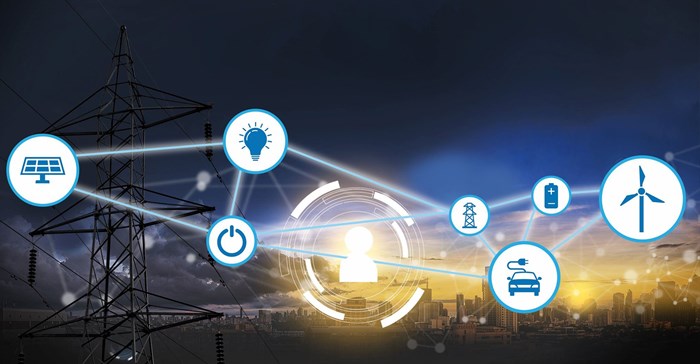Actom, a supplier of low-voltage motors, gearboxes, speed reducers and motor starters recently held a webinar Draft IRP2023 Impact on the Manufacturing Sector.

Source: Supplied.
The following panellists shared their viewpoints on the topic: Mervyn Naidoo, group chief executive officer of Actom; Phillipa Rodseth, executive director of Manufacturing Circle and Gaylor Montmasson-Clair, senior economist, Sarem facilitator and Pat Naidoo facilitated the debate:
South Africa’s draft Integrated Resource Plan (IRP) 2023 is a key document that outlines a comprehensive strategy for addressing the country’s energy-security challenges, while also setting out its transition to a diversified energy mix, including renewables.
Released in January this year, the draft IRP 2023 has faced criticism from some quarters for having gaps in its roadmap to shaping a sustainable energy future, but it also has several strengths and can potentially unlock various benefits for the country and specifically the manufacturing sector.
The draft IRP 2023 comes at a time when South Africa is facing significant social- and energy challenges, with an unemployment rate of close to 33% and continuous load shedding which is having a catastrophic impact on the economy. This poses the risk of affecting the quality of the products produced by manufacturers and affects their ability to produce the required volumes.
Additionally, the delays in investment in previous renewable energy projects have resulted in a general decline in the manufacturing sector, with many large companies being forced to close some of their plants.
Manufacturers require predictable demand to be able to load and sustain their factories or they will face risks that could threaten their businesses. These delays have also resulted in major lost opportunities for capacity increase in the sector, with many companies being forced to hold back on capex programmes and expansion.
Low levels of manufacturing activity
The loss of jobs and retention of scarce skills has been felt by the manufacturing sector, due to the low levels of activity in manufacturing during the past 10 years, with many companies having to scale down and even close because of a lack of loading.
The IRP 2023 talks to very modest projections for renewable energy projects coming onstream and introduces gas-to-power to the energy mix, with coal remaining a significant energy source alongside hydro-, storage-, and hydrogen projects. However, the plan does bring the potential to create investment opportunities, foster local skills development, generate job opportunities, and establish valuable partnerships within the manufacturing sector.
Considering that there has been a stop-start approach to the government’s Renewable Independent Power Producer Programme (REIPPP) in the past, certain key factors must be considered with the implementation of the IRP 2023.
Firstly, there must be discipline and decisiveness in the implementation of the programme as previously there was planning by ultimately a lack or delay in the execution. Going forward, we really need to change that.
Secondly, the scale of the investment that will be required must aggressively be targeted towards maximising localisation and the reindustrialisation of South Africa. At the same time, a strategic medium- to long-term procurement framework will be required where manufacturers look at things from an “SA Inc” perspective.
Strategic procurement models
Going forward, it will be critical for the manufacturing sector to use the demand it does have and leverage it to move towards strategic procurement models to maximise the saturation of the capacity in local factories. This is not only needed for the sake of the country but also to make business cases bankable for investment to grow manufacturing.
Similarly, South Africa’s Integrated Development Plan (IDP) and Transmission Development Plan (TDP) both have major potential to turn around the country’s jobs and economic woes.
The TDP has identified the need to build over 14,000km of transmission line and associated substations, as well as the need to build renewable energy projects. This has the potential to turn the tide for the manufacturing sector.
However, we must ensure that we learn lessons from the mistakes of the past, specifically from the Transnet 1064 locomotive programme, which saw a lack of investment in local manufacturing and about half the locomotives acquired were not localised.
This means that we not only lost the opportunity to build capacity for local manufacturing but also lost the aftermarket support for that locomotive fleet and this has manifested in the logistics challenges that we see in South Africa today.
This is relevant for the implementation of the IRP 2023 because we need to ensure that we do not end up with mass imports to the detriment of the local manufacturing sector and to the detriment of our ability to support the aftermarket repairs and services of these products.
Ultimately, we need continuous engagement between industry and key stakeholders for the benefit of our country. We must adopt an SA Inc perspective on what we are about to embark on in terms of the IRP 2023, the IDP and the TDP.
We are effectively looking at energy transmission and generation demand that could map out a sustainable manufacturing industry for the next 10 to 30 years. We must get this right.











